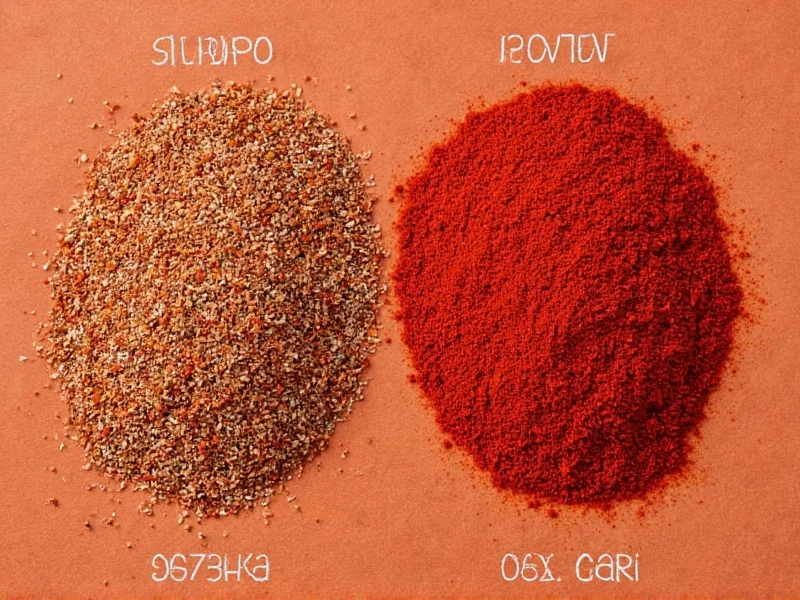Understanding the distinction between Aleppo pepper and crushed red pepper transforms your cooking approach. These two pantry staples serve different culinary purposes despite both being red pepper flakes. Knowing when to reach for each can elevate your dishes from ordinary to extraordinary.
Origins and Production Methods
Aleppo pepper originates from Syria and Turkey, named after the Syrian city of Aleppo. Traditionally, these peppers are semi-dried in the sun, then coarsely ground and often mixed with a small amount of olive oil and salt to prevent caking. This process creates its signature deep burgundy color and slightly moist texture.
Crushed red pepper, by contrast, typically comes from various dried red chili peppers (most commonly cayenne) that are simply dried and mechanically crushed. The production process is more industrial, resulting in uniformly dry, bright red flakes without added ingredients.
Flavor Profile Comparison
| Characteristic | Aleppo Pepper | Crushed Red Pepper |
|---|---|---|
| Heat Level (Scoville) | 10,000 units (moderate) | 25,000-30,000 units (hotter) |
| Primary Flavor Notes | Fruity, tangy, subtle saltiness, hint of raisin | Direct heat, minimal complexity, slight bitterness |
| Mouthfeel | Smooth, rounded heat that builds gradually | Immediate, sharper burn that dominates |
| Aftertaste | Pleasant, lingering fruitiness | Brief, sometimes harsh finish |
Culinary Applications
Chefs value Aleppo pepper as a finishing spice that adds complexity without overwhelming heat. Its nuanced flavor complements Mediterranean and Middle Eastern dishes beautifully. Sprinkle it on hummus, roasted vegetables, grilled meats, or even avocado toast for a sophisticated touch. Many professional kitchens keep Aleppo pepper on tables as a preferred alternative to standard red pepper flakes.
Crushed red pepper works best when you want straightforward heat without additional flavor dimensions. It's the classic choice for Italian-American cuisine—sprinkled on pizza, mixed into pasta sauces, or added to sautéed vegetables when you want noticeable spiciness. The immediate heat makes it ideal for dishes where pepper flavor should play a supporting rather than starring role.
Substitution Guidance
When substituting between these peppers, consider both heat level and flavor complexity. For every ½ teaspoon of Aleppo pepper, use approximately ¼ teaspoon of crushed red pepper to match heat levels, then adjust to taste. To better approximate Aleppo's complexity when substituting crushed red pepper, add a pinch of salt and a few drops of lemon juice or vinegar.
Conversely, when replacing crushed red pepper with Aleppo, you'll need to use about twice the amount to achieve similar heat intensity, but be mindful that you're also adding fruity notes that might alter your dish's flavor profile. For authentic Italian recipes calling for crushed red pepper, this substitution might not provide the expected results.
Storage and Shelf Life
Due to its oil content, Aleppo pepper has a shorter shelf life than standard crushed red pepper. Store both in airtight containers away from light and heat, but plan to use Aleppo within 6 months for optimal flavor. Crushed red pepper maintains quality for up to a year when properly stored. Freezing either pepper extends shelf life significantly while preserving flavor compounds better than room temperature storage.
Practical Cooking Recommendations
For Mediterranean dishes like fattoush salad or muhammara dip, Aleppo pepper is irreplaceable—its complex flavor integrates perfectly with other ingredients. When making shakshuka, add Aleppo pepper during the last minute of cooking to preserve its delicate flavor notes.
Crushed red pepper shines in tomato-based sauces where its straightforward heat penetrates the acidity. Add it early in the cooking process for pizza sauce to allow the heat to mellow and integrate. For homemade chili oil, crushed red pepper provides the clean heat profile that allows other flavors to shine through.
Finding Quality Products
When purchasing Aleppo pepper, look for deep burgundy color with visible oil sheen—avoid products that appear uniformly dry like standard red pepper flakes. The best versions contain only peppers, salt, and sometimes olive oil. Many supermarket versions labeled as "Aleppo" are actually blends that lack authentic flavor.
For crushed red pepper, check the ingredient list—pure versions contain only dried red peppers. Some commercial blends add other spices that alter the flavor profile. Specialty food stores and Middle Eastern markets typically offer higher quality options for both products compared to standard grocery store spice aisles.
Can I substitute paprika for Aleppo pepper?
While smoked paprika provides some similar fruitiness, it lacks Aleppo's heat. For closer substitution, combine ½ teaspoon sweet paprika with ¼ teaspoon cayenne pepper and a pinch of salt. This mixture approximates Aleppo's flavor profile but won't replicate its unique characteristics.
Why does authentic Aleppo pepper contain oil?
The small amount of olive oil in authentic Aleppo pepper serves two purposes: it prevents the coarse flakes from becoming too dry and powdery, and it helps distribute the flavor more evenly when sprinkled on food. The oil also preserves the pepper's volatile flavor compounds longer than completely dry versions.
Which pepper works better for homemade hot honey?
Aleppo pepper creates a more complex hot honey with nuanced heat that complements rather than overwhelms the sweetness. The fruity notes blend beautifully with honey's floral qualities. Crushed red pepper produces a sharper, more one-dimensional heat that might dominate delicate flavors in applications like hot honey chicken or pizza.
Does Aleppo pepper expire faster than regular red pepper flakes?
Yes, Aleppo pepper typically maintains peak flavor for 4-6 months due to its oil content, while standard crushed red pepper stays fresh for 8-12 months. Store Aleppo pepper in the refrigerator or freezer to extend its shelf life. The oil in Aleppo can eventually go rancid, so discard if you notice any off smells.











 浙公网安备
33010002000092号
浙公网安备
33010002000092号 浙B2-20120091-4
浙B2-20120091-4